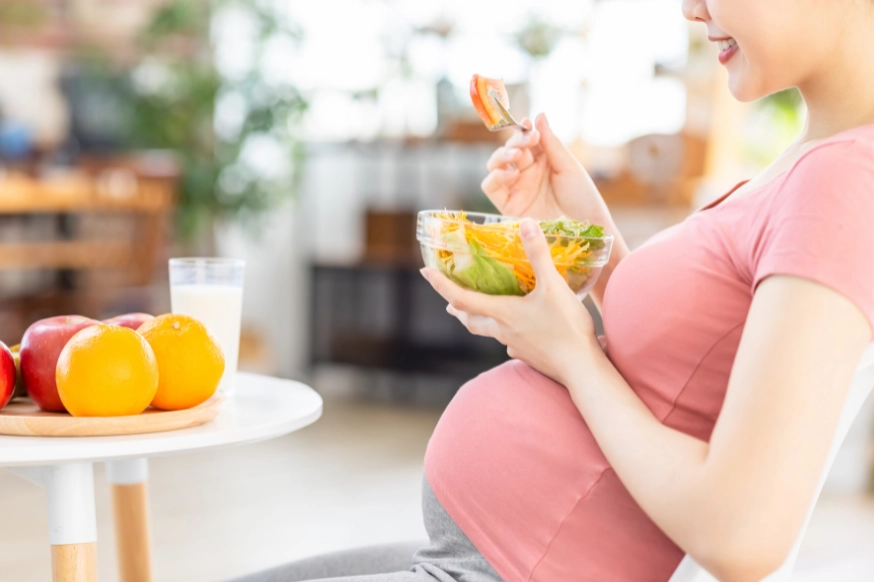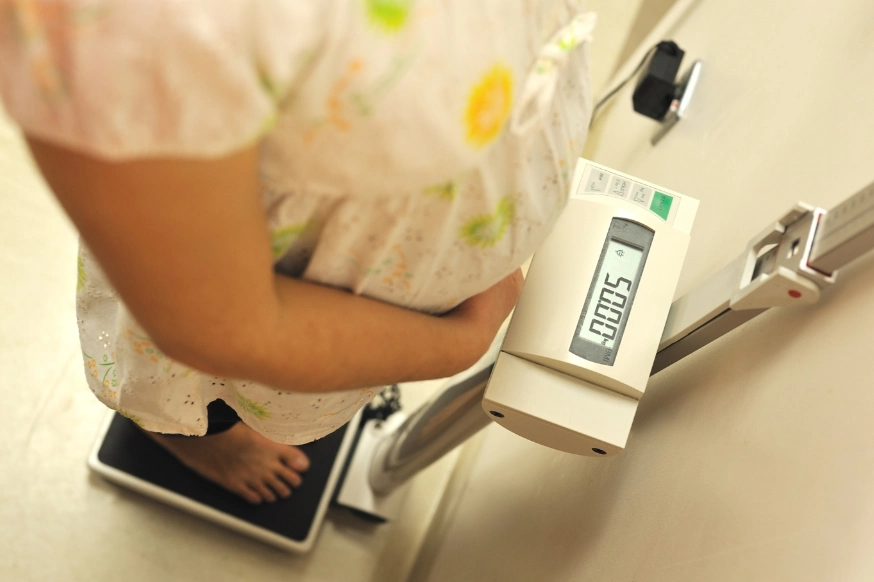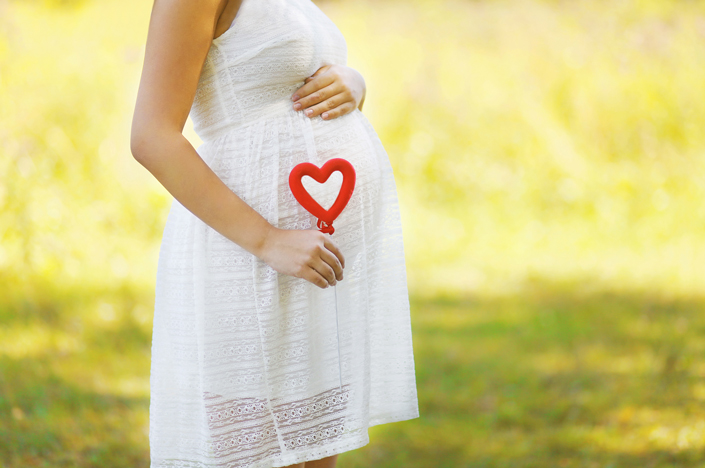Gaining a lot of weight quickly? Confused about what to eat and how much? Very few pregnant women know how much weight they should gain, what to eat and what to avoid for a healthy pregnancy. A healthy pregnancy means less chance of poor pregnancy outcomes or complications. It also helps prevent the risk of cardiovascular disease, hypertension, and diabetes later in your child’s life. A nutritionist is the best person to contact to guide you towards a healthy diet for a healthy pregnancy and positive outcomes. Here are 3 main reasons to visit a nutritionist when you’re pregnant.
Reason #1 Avoid Over or Under Eating

A nutritionist will tell you how much you should eat. You need extra calories during pregnancy for your own bodily changes and for your baby’s development like building your baby’s bones and organs. It is very crucial to meet adequate energy needs during pregnancy for ensuring good energy levels and adequate weight gain. A nutritionist will calculate your daily calorie requirements based on your current weight, height, age and activity levels to avoid overeating or under-eating. Overeating is associated with weight gain, heartburn, discomfort and many other complications. Undereating may result in low birth weight, associated with increased risk for infant mortality.
Reason#2 Avoid Gaining Extra Weight

A nutritionist can help you set your weight goals during pregnancy. They will decide based on your current weight how many kilograms you should gain at an appropriate rate. A woman with either excess or low body weight has a greater risk for poor outcomes. Excess weight gain is associated with increased health risks like gestational diabetes and complications during delivery. Also, excess weight gain during pregnancy will take you more time and effort to lose after delivery as the metabolism naturally slows down after childbirth.
Reason #3 Avoid Poor Pregnancy Outcomes

A nutritionist will help you build a diet that includes key nutrients for a healthy pregnancy. Requirements of certain nutrients like protein, folic acid, calcium, and iron increase during pregnancy to support your baby’s growth. Not having enough from these can affect the development of your baby! For example, not getting enough folic acid increases the risk of spina bifida, a condition characterized by spinal deformities.
Also, a nutritionist will exclude the foods that put your baby’s health at risk and that should be avoided when you’re pregnant like coffee, raw fish, soft cheese, and alcohol. For example, camembert and blue cheese can contain listeria bacteria that cause listeriosis, an infection that can lead to miscarriage, premature delivery, or life-threatening infection of your baby.







